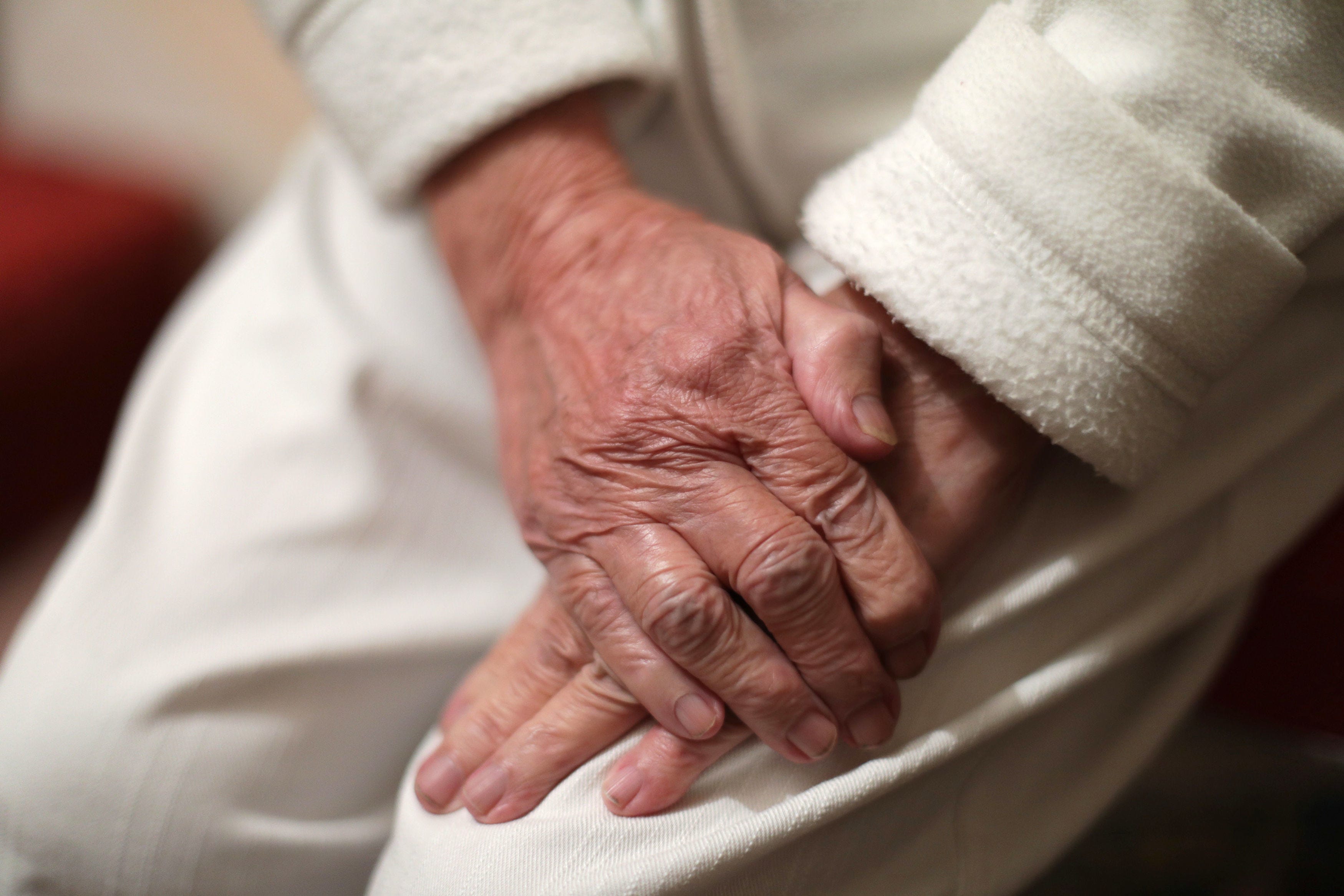What you need to know about lecanemab – the Alzheimer’s drug rejected for NHS use
The drug has been developed by Eisai, a Japanese pharmaceutical company, and is sold under the brand name Leqembi

Your support helps us to tell the story
From reproductive rights to climate change to Big Tech, The Independent is on the ground when the story is developing. Whether it's investigating the financials of Elon Musk's pro-Trump PAC or producing our latest documentary, 'The A Word', which shines a light on the American women fighting for reproductive rights, we know how important it is to parse out the facts from the messaging.
At such a critical moment in US history, we need reporters on the ground. Your donation allows us to keep sending journalists to speak to both sides of the story.
The Independent is trusted by Americans across the entire political spectrum. And unlike many other quality news outlets, we choose not to lock Americans out of our reporting and analysis with paywalls. We believe quality journalism should be available to everyone, paid for by those who can afford it.
Your support makes all the difference.Lecanemab has as been approved for use in the UK, but will not be available on the NHS.
The drug is shown to slow the progression of Alzheimer’s disease.
The National Institute for Health and Care Excellence (Nice) said the benefits of lecanemab are too small to justify the significant cost to the NHS, while the Medicines and Healthcare products Regulatory Agency (MHRA) has said it is efficient at slowing Alzheimer’s disease.
Lecanemab is an antibody drug that has been shown to slow down the early stages of Alzheimer’s.
It works by binding to a protein known as amyloid, which builds up in the brains of people living with the disease.

The drug has been developed by Eisai, a Japanese pharmaceutical company, and is sold under the brand name Leqembi.
How effective is lecanemab?
Lecanemab been shown to successfully remove amyloid build-up from the brains of people living with early Alzheimer’s disease.
For people taking the drug, 18 month-long trials showed the decline in thinking and memory skills slowed down by 27%.
It also slowed down the decline in quality of life by up to 56%.
These trial results were hailed by experts as a milestone as it was a first time a drug had shown the underlying mechanism of the disease could be slowed.
What has the MHRA said?
The MHRA said lecanemab is the first treatment for Alzheimer’s licensed for use in UK that shows some evidence of efficacy in slowing progression of the disease.
Julian Beach, MHRA interim executive director, Healthcare Quality and Access, said the appropriate regulatory standards for this medicine have been met.
What has Nice said?
In a draft guidance published on Thursday, Nice has said the benefits of lecanemab are too small to justify costs.
The drug is already licensed in the US, where it costs about £20,000 per patient per year.
Dr Samantha Roberts, chief executive of Nice, said that while lecanemab has a small but meaningful effect (four to six months) on delaying decline when added to existing treatment, there is a lack of evidence on its long-term effects.
Lecanemab is given every two weeks through an intravenous (IV) drip.
Are there any side-effects?
During clinical trials, some people taking lecanemab experienced reactions to having the drug infused, fever, rash, chills and body aches, while some others were found to have swelling or microbleeds in the brain in response to the drug.

There have also been three deaths related taking lecaneamb in the trial, but this is less than 0.2% of patients taking part.
The majority of people who experienced brain bleeding or swelling had no symptoms and these changes were only detected using brain scans.
Are other countries using the drug?
Lecanemab has already been approved in the US, Japan and China.
But the European Medicines Agency (EMA) rejected lecanemab in late July, saying the benefits were small and did not counterbalance the risk of serious side effects, such as bleeding and swelling in the brain.
What do the experts think?
Dr Sebastian Walsh, NIHR Doctoral Fellow, University of Cambridge, said while it may seem confusing that the MHRA has granted a licence but Nice has rejected lecanemab, it is consistent with their roles in the system.
He said: “The MHRA are the regulator, they look at evidence on whether the drug works and whether it is safe.”
He said the trials showed lecanemab to be good at clearing the amyloid protein and that the MHRA weighed this evidence against the side effects, and decided it was sufficient to grant a license for certain groups of patients.
Dr Walsh said: “Nice have a different job.
“They consider whether the drug offers good value for money for the NHS.
“This is because any money and resources, for example, brain scans and staff time spent on this drug are not available to be used for other things, meaning other NHS patients miss out.”
He also said working out who is and is not eligible requires a lot of testing, including genetic testing and brain scans.
Dr Walsh said: “The majority of people with Alzheimer’s wouldn’t be eligible for these treatments.
“So it is unsurprising that Nice does not consider these drugs cost-effective and recommend against use in the NHS.”
Fiona Carragher, chief policy and research officer at Alzheimer’s Society, said while the MHRA approval was a “defining moment” for people with early-stage Alzheimer’s, the Nice decision not to recommend the drug for NHS use was “disappointing”.
Hilary Evans-Newton, chief executive at Alzheimer’s Research UK, described the news as a “bittersweet moment”, but added further negotiations between Nice, Eisai and the NHS may offer a way forward.
Are their other drugs available?
Donanemab – another drug that has been shown in clinical trials to slow Alzheimer’s – is approved for use in the US.
It is among other 130 potential treatments for Alzheimer’s disease being tested in trials.